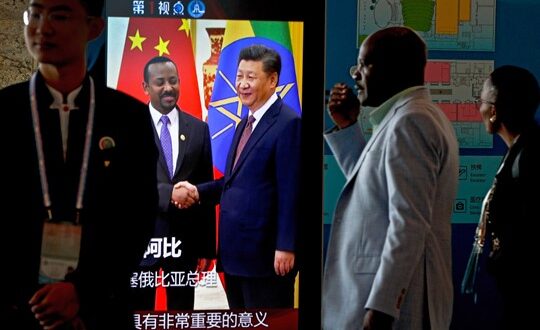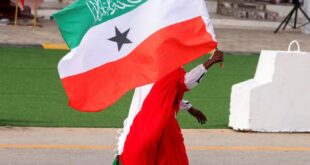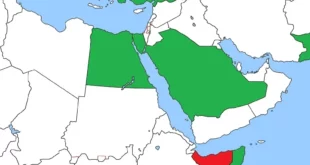The eighth edition of the triennial Forum on China-Africa Cooperation, or FOCAC, took place this week in Dakar, Senegal, marking the first time the meeting was held in West Africa. The conference, which took place days after the release of a Chinese government white paper detailing a new era of cooperation with African countries, saw major announcements on COVID-19 vaccines, Special Drawing Rights allocations and climate cooperation. While those areas of cooperation portend to be the cornerstone of engagement between China and Africa, growing debates are emerging on the continent and elsewhere about the imbalanced nature of the relationship.
FOCAC 2021 was technically billed as a ministerial conference rather than a summit-level event, because Chinese President Xi Jinping and most African heads of state and government did not physically attend the gathering. It was jointly presided over by Senegalese Foreign Minister Aissata Tall Sall and Minister of Economy, Planning and Cooperation Amadou Hott, and Chinese Foreign Minister Wang Yi and Commerce Minister Wang Wentao.
This year’s gathering reviewed the high points in the relationship between China and Africa’s 54 countries, with pledges to build on the unprecedented agreements struck at the Johannesburg summit in 2015 and the 2018 edition in Beijing. Appearing at the opening ceremony of the conference via video, Xi noted that 2021 marked the 65th anniversary of the opening of diplomatic relations between China and African countries, pledging that China and Africa would work together “to promote and carry forward the spirit of China-Africa friendship and cooperation from generation to generation.”
As a demonstration of the “new era” of engagement, he announced nine programs that make up the jointly agreed China-Africa Cooperation Vision 2035, including the provision of 1 billion doses of coronavirus vaccines to African countries, a trade promotion program to boost agricultural exports to China, several other industrial agreements, and a green development program that includes support for the “Great Green Wall.” Beijing also announced that it will channel $10 billion of its share of the IMF’s new Special Drawing Rights allocation to Africa to help support fiscal and monetary stability, as well as to resolve debt.
In addition to Cooperation Vision 2035, the conference also adopted a Dakar Action Plan 2022-2024 and a declaration on combatting climate change, as well as the joint communiqué, the Dakar Declaration of the Eighth Ministerial Conference of FOCAC. In addition, several African delegations—including Sierra Leone, Cote d’Ivoire, Zimbabwe and Senegal—held sideline bilaterals with Chinese and other African officials, where a number of agreements and memoranda of understanding were signed.
Despite the positive atmosphere and outcomes, however, the Dakar conference took place against the backdrop of growing debates in Africa about the asymmetrical nature of the relationship with China and concerns about the risk of debt distress involving several African governments. Carlos Lopes, an economics professor at the University of Cape Town, South Africa, asked on Twitter about the logistics and IP issues surrounding the vaccines announcement, while noting that the Chinese financing announcements from FOCAC 2021 were less impressive than previous editions.
Cliff Mboya, Africa editor for The China-Africa Project, told me that while the SDR allocation was a welcome gesture that African leaders supported, it fell short of his expectations in terms of its dollar value. With more firepower, he added, the initiative “would have been an ideal substitute for commercial loans that are drying up from China,” echoing sentiments from Lopes and other observers. Nonetheless, Mboya said that the vaccine pledge is a significant statement, showing that Beijing is falling in line with African sentiments regarding vaccine access.
Still, questions and even some misgivings about the terms of engagement with China exist among Africans. The Collective for the Renewal of Africa—or CORA, a group of researchers and scholars from across the continent and the diaspora—recently published an article in The China-Africa Project with recommendations for how to bring the relationship between China and African countries onto a more equal footing. Similarly, many African leaders—including Senegalese President Macky Sall, South African President Cyril Ramaphosa, Congolese President Felix Tshisekedi and African Union Commission Chairperson Moussa Faki Mahamat—made allusions to the desire for a more equitable partnership during the conference, while speaking in broadly positive terms about relations between Africa and China.
Folashade Soule, a senior research associate at Oxford University who authored the piece on behalf of CORA, said separately that African governments ought to be more discerning about what offers to accept from China and other partners. “The ‘take it all’ mentality of accepting short-term, opportunistic offers should be avoided,” she told me. “Loans, grants and donations should fit African countries’ national development plans and translate into projects that will directly affect people’s living standards.”
Echoing arguments she has made elsewhere, Soule also said that African governments should take advantage of the expertise of former African students who were trained in China’s universities to provide capabilities and language skills in the short term, while building an internal pool of experts with knowledge of Chinese politics, cultures and languages. “These are all easy and effective ways to enhance local knowledge production and generate expertise for African governments,” she concluded.
And that could go a long way toward adding more balance to the continent’s beneficial but at times lopsided relationship with Beijing.
Civil Society Watch
On the eve of Gambia’s first presidential election since longtime dictator Yahya Jammeh was defeated by incumbent President Adama Barrow, domestic civil society groups and their international partners are pulling out all the stops to consolidate the gains made since the 2016 election, in hopes that Saturday’s ballot will signal a new democratic dawn in the West African country.
Caritas-Gambia, through its Electoral Violence Monitoring Analysis and Mitigation Project, or EMAM, recently completed a four-day forum for youths and religious leaders ahead of the election. The objective of the exercise was to hold advocacy meetings with identified communities in areas seen as potential flashpoints for electoral violence, working with religious and community leaders to brainstorm and identify contentious issues surrounding the Dec. 4 vote, and the role those issues could play in driving potential violence before, during and after the polls.
Culture Watch
The talk of the Afrobeats world is Nigerian music superstar Wizkid, whose three-day Made in Lagos concerts in London’s O2 Arena sent tongues wagging on social media this week. The singer kicked off the festivities on Sunday night and rounded it off with Wednesday’s show, which was livestreamed on YouTube and saw more than 80,000 viewers tune in. During the three shows, Wizkid—who recently won Apple Music Awards’ Artist of the Year for Africa (bizarrely, the only award categorized by continent, rather than country)—performed hits from his critically and commercially acclaimed album, “Made in Lagos,” including the fan favorite, “Essence.” Guest appearances were made by Burna Boy, Nigerian-British rapper Skepta, Wizkid’s “Essence” co-star Tems and British singer Ella Mai, as well as a controversial cameo by U.S. R&B star Chris Brown.
Top Reads From Around the Web
The real reason China is pushing “digital sovereignty” in Africa. Yinka Adegoke writes in Rest of World about how Africa’s push for more digital sovereignty is converging with China’s ambition to realize its “Digital Silk Road.” While the two notions might seem contradictory, the article features insights from Africa-China observers who note the many steps African countries could take to ensure that adequate transfer of knowledge and intellectual property is attained, while retaining national autonomy.
South Africa’s foreign policy on Africa needs a revamp. In a week where Africa’s relations with China were the dominant theme of the continent’s international conversations, South African President Cyril Ramaphosa embarked on a four-nation tour of West Africa. The highlight of his visit was undoubtedly the Nigeria leg, where he met with President Muhammadu Buhari and signed a number of agreements.
This Institute for Security Studies report by Paul-Simon Handy and Felicite Djilo looks at the state of South Africa’s foreign policy, particularly as it relates to Africa, highlighting its weaknesses and the possible steps the Southern African country could take to return to a position of greater continental standing.
 Eurasia Press & News
Eurasia Press & News



